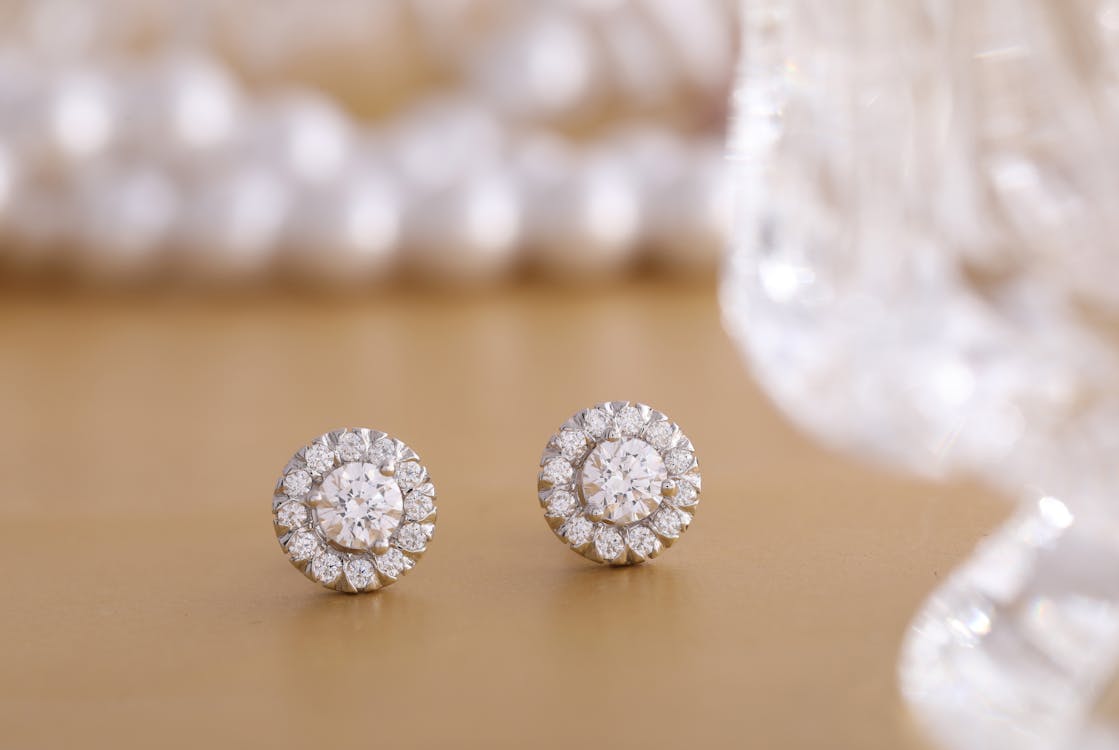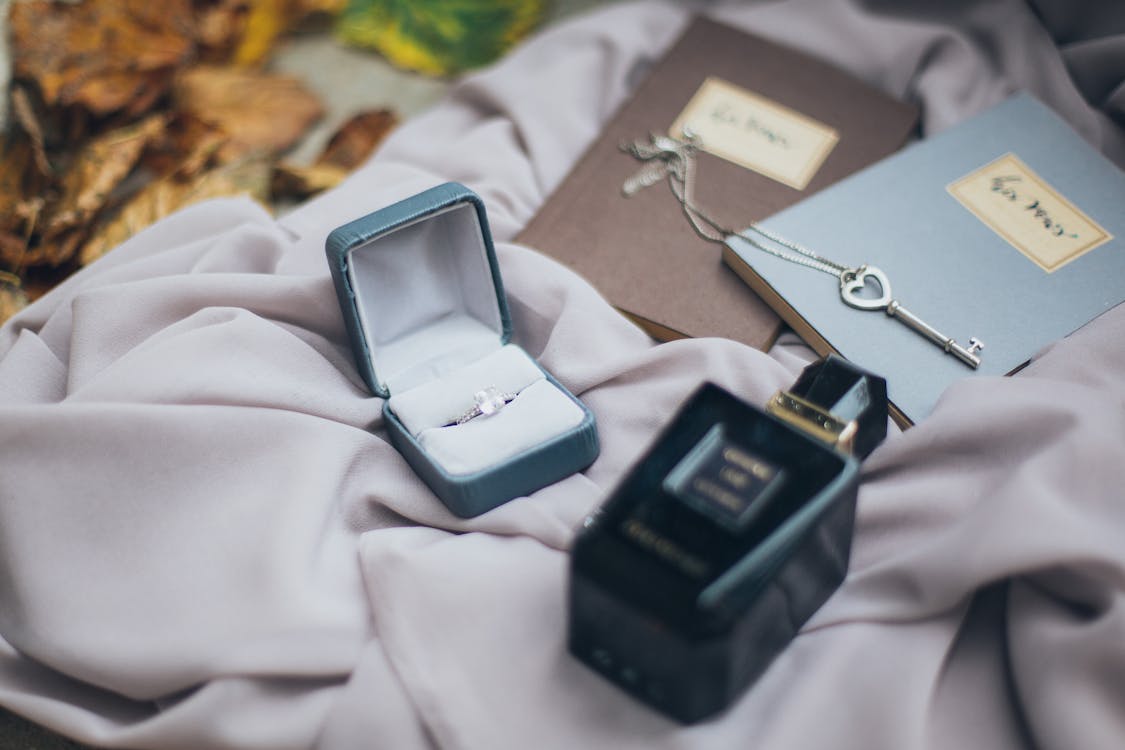For centuries, diamonds have been revered as symbols of love, trust, loyalty, and commitment. Not only that, but diamond jewelry offers a timeless beauty that is held in high esteem around the world today. Did you know there's a new way to enjoy the sparkle and symbolism of the diamond in modern times?
Lab-created diamonds continue to gain in popularity as buyers increasingly want sustainable and eco-friendly gemstones that are still beautiful and will capture a moment just as well as a natural diamond. This guide tells you everything you need to know about man-made diamonds and why they are the perfect gift.
What are Lab Diamonds?

Sometimes called cultured diamonds or synthetic diamonds, lab-grown diamonds are those grown by advanced technology in a controlled environment, under similar conditions to natural diamonds. They have the same physical, optical, and chemical properties as a natural stone. That means that it's virtually impossible to tell the difference unless you put the stone under a microscope. They are not faux diamonds or diamond alternatives such as cubic zirconia or Moissinite.
Lab-made diamonds are made using technology that mimics the natural conditions, resulting in flawless and ethically sourced stones that are a sustainable alternative to earth-mined diamonds.
How Lab-Grown Diamonds Are Made
There are two ways in which lab-created diamonds are formed. Each of these methods offers a safe and efficient alternative to diamond mining that also creates high-quality and consistent diamonds. Let's look at each of them in detail.
High-Pressure High-Temperature (HPHT)
This method uses, as the name implies, high heat and high pressure to form a diamond. The technique mimics the natural conditions in which diamonds are created deep within the Earth's mantle. Applying extreme pressure and heat in a controlled setting forces carbon atoms to bond together and crystallize, creating man-made diamond structures.
Chemical Vapor Deposition (CVD)
In this technique, a diamond seed is placed in a chamber that surrounds it with carbon-rich gas. When those gases are heated, carbon atoms attach to the seed, one layer at a time. As the layers build on one another, a diamond crystal forms. This method is most often used for larger stones that have no inclusions.
Differences Between Mined and Lab-Grown Diamonds

Lab-grown diamonds look identical to natural diamonds, but there are some differences to keep in mind.
Origin
Natural diamonds are mined from inside the Earth, which requires a lot of labor. Mining also has a negative environmental impact and has some ethical issues that modern diamond buyers are well aware of, which is why they are often referred to as conflict diamonds or blood diamonds. Lab-created stones, on the other hand, are created in a controlled setting, eliminating both ethical and environmental concerns.
Price
Real diamonds tend to cost much more than their lab-created counterparts. Man-made diamonds are an affordable option that cost as must as 30 to 40 percent less than natural gemstones. That's because it's less labor-intensive than mining and doesn't require the high degree of manpower and resources.
Environmental Impact
Mining for diamonds disrupts the land and uses a lot of energy and water, damaging the local ecosystems. Because lab-grown diamonds require much less in the way of resources, they leave behind a smaller carbon footprint and are an eco-friendlier choice.
Why Choose Diamond Jewelry?

Not only are they beautiful, whether for diamond earrings, a diamond engagement ring, or a diamond bracelet, but the stones also carry a lot of symbolism. That makes them the perfect choice for a gift. Let's look at some of the other reasons to choose diamonds.
- Timeless appeal
- Symbolic of love and commitment
- Ideal for casual and formal attire
- Come in many sizes and shapes
- Can be passed down through generations
Why Lab Diamonds Make Meaningful Gifts

You want to give a gift that has meaning to you and the recipient, making lab-grown diamonds a fantastic choice for any occasion. There are lots of reasons to choose synthetic diamonds over natural diamonds and a few of them are listed here.
Ethical Alternatives
You can express your love and loyalty with lab-grown diamonds because they offer peace of mind when it comes to protecting the environment and preserving resources. Lab diamonds are sustainable and ethical, so can get the best of both worlds, whether you're looking for the perfect choice for engagement rings or you want a beautiful diamond pendant.
Unique and Customizable
With the huge array of designs available for lab-grown diamond jewelry, you have lots of options for creating the perfect piece for the gift recipient. You can find lab diamonds in all shapes and sizes, from round diamonds to heart-shaped diamonds to square diamonds and everything in between. With that in mind, you have the opportunity to create a unique, one-of-a-kind piece of jewelry.
High Quality and Affordable
Choosing lab diamonds doesn't mean you have to compromise on quality. And you can find beautiful diamond jewelry pieces that come with a lower price tag. That means you can gift your loved one a pair of diamond stud earrings or a cocktail ring with exceptional quality and timeless allure.
Better for the Planet
Whether you need the perfect stone for an engagement ring or you're looking for a sparkling tennis bracelet, lab diamonds have never been a better choice and responsible alternative to natural diamonds. Not only do they symbolize your love and loyalty, but they also demonstrate your commitment to protecting the environment.
Summary
A lab-created diamond is more than a glittery gemstone. It's also clear proof of innovation and conscious living. No matter the reason for the gift - an engagement, an anniversary, a birthday, or anything else, lab-grown diamond jewelry is the ideal way to honor your loved one, while also making a choice that aligns with your personal values.
Grab your favorite beverage, get comfy, and browse the extensive collection at 1800 Loose Diamonds. There’s a lab diamond jewelry gift for every budget and occasion.
